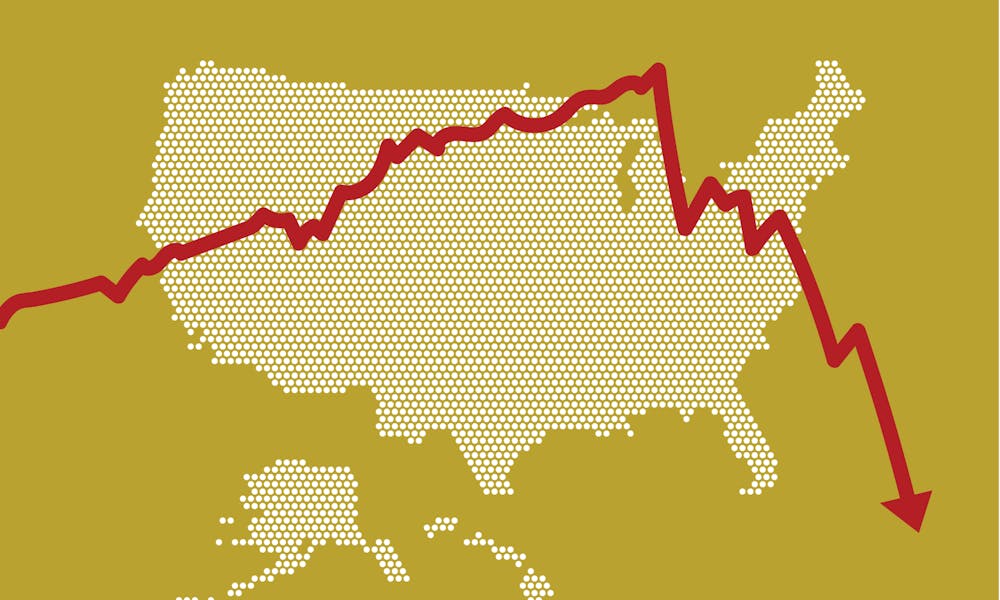
As the coronavirus pandemic dominates the global conversation and threatens the economy, the Wharton School has organized an online course about the disease's effects on business.
Wharton management professor Mauro Guillén is launching an online half-credit course on the global business implications of the coronavirus outbreak — which he said is the first university course to focus on the pandemic. The course, titled “Epidemics, Natural Disasters, and Geopolitics: Managing Global Business and Financial Uncertainty,” will run for six weeks starting March 25 and will be taught by fourteen different lecturers.
Lecturers will include National Bureau of Economic Research Fellow Kent Smetters, Department Chair of Medical Ethics and Health Policy Ezekiel Emanuel, and Wharton Dean Geoffrey Garrett, among others, CNBC reported.
“We decided to start this class because we wanted to make available to our students Wharton faculty expertise that is highly relevant to the coronavirus crisis,” Garrett wrote in an email to The Daily Pennsylvanian.
Although the course is listed under Wharton, Garrett wrote that Penn students across every undergraduate and graduate school are able to enroll, and there is no cap on enrollment.
Each week, the course will examine the coronavirus outbreak from a new angle, Guillén said. Course topics will include the effect of the coronavirus on the global marketplace and geopolitics, as well as how leaders negotiate risk and handle emotional distress in times of crisis, Guillén said.
"The crisis is at its core about public health, but it has dramatic implications for markets, budgets, governments, and societies all around the world," Garrett wrote.
On Thursday, the stock market saw its biggest drop to the Dow Jones industrial average since 1987, following the United States' ban on entry from most European countries. The New York Times reported that investors have been disappointed with the lack of action taken by the U.S. government to bolster the economy.
The large blows to the stock market and the shutdown of commerce worldwide have prompted economists to warn that the economy is likely headed toward a global recession.
Guillén said he hopes students will gain an understanding of how companies can plan for recovery and the necessity of leaders to offer actionable steps to move forward.
“The goal is to help [students] cope and also to prepare,” Guillén said.
Guillén told CNBC that Garrett proposed the idea for the course. He suggested Guillén teach a course similar to the one he led on the 2008 economic recession. Guillén taught "The Economic and Financial Crisis: Causes, Consequences, and Policy Options" in 2009, analyzing the global economic impacts of the recession.
The new course will meet virtually each Wednesday for three hours, Guillén said, but the lectures will be recorded online for students in various time zones. Assignments will be posted on Canvas, while lectures will be given over BlueJeans, a virtual classroom program that incorporates class participation through messages.
Wharton administrators launched a website to gauge interest and for students to pre-register, Guillén said. The website is now down and faculty are working to create a formal registration process. Guillén said students can pre-register in the meantime by emailing him.
Wharton first-year Andrew Yu said he is excited about the course and is planning to register as soon as it is available. He said he expects that there will be more global crises like the coronavirus in his lifetime and wants to be prepared.
“We don’t want to have another case like the coronavirus where the United States had no idea what to do about it,” Yu said.
First-year nursing Ph.D. student Nina Juntereal said she doesn’t think the course will help students cope more than other available resources from organizations like the Centers for Disease Control and Prevention.
“It’s an interesting idea, but I don’t understand what value it will bring to the table,” Juntereal said.
Juntereal said students are overwhelmed enough by their current courses as they rapidly move off campus, with little certainty of when they will return.
“I am so pleased that my colleagues were ready and willing to support Mauro Guillén in putting this class together, literally overnight,” Garrett wrote.
The Daily Pennsylvanian is an independent, student-run newspaper. Please consider making a donation to support the coverage that shapes the University. Your generosity ensures a future of strong journalism at Penn.
Donate







